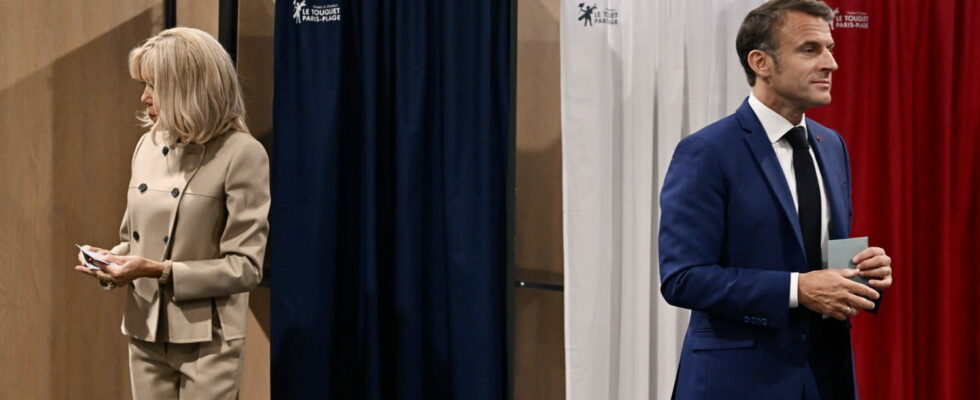Did the presidential majority party face a rejection during this first round of legislative elections on Sunday, June 30, as the polls predicted?
As was announced by the various polling institutes, the first round of the legislative elections organized this Sunday, June 30, was not favorable to the presidential majority. The “Together” coalition obtained 22.5% of the votes at the end of this first round according to the first partial results communicated by Ifop for TF1 and LCI. The presidential majority therefore finds itself ahead of the National Rally (34.5%) and the New Popular Front (28.5%). However, we will have to wait for more refined results to know precisely in which constituencies the presidential majority will play its seats in the National Assembly in the second round, next Sunday.
The bet attempted by Emmanuel Macron to dissolve the National Assembly on the evening of the European elections, June 9, and therefore to organize early legislative elections, ended in a disavowal. The fault lies in the inability of the Renaissance group to unite around its program – the moderate left was sucked into the Popular Front and the Republicans did not respond to the call – and in a proven disenchantment of the French with the person of the President of the Republic.
In June 2022, during the last legislative elections, held following the re-election ofEmmanuel Macron, the presidential party – Together! – had collected more than 38% of the votes. In the space of two years, its electorate would have been almost halved. With 245 seats in the National Assembly before the surprise announcement of the dissolution on June 9, Renaissance may soon have to be content, at best, with around a hundred deputies in the hemicycle.
With possibly far fewer seats than under the Attal government, which will have lasted only six months if it were to be dismissed at the end of the second round at the beginning of July, the presidential party will certainly no longer have the slightest possibility of forming a government.
The presidential party, founded in 2016 under the name En Marche, nevertheless retains a small hope of collecting the votes of those who, on the left as well as the right, do not recognize themselves in the respective programs of the Popular Front and the National Rally. But in view of the figures, it seems rather unlikely to imagine a favorable outcome for it at the end of these elections.
This is especially true since in the constituencies where Renaissance will qualify for the second round – which means obtaining at least 12.5% of those registered – there is the risk of finding itself in a triangular situation with both the RN and the Popular Front. is very strong, especially in view of the first national estimates.
